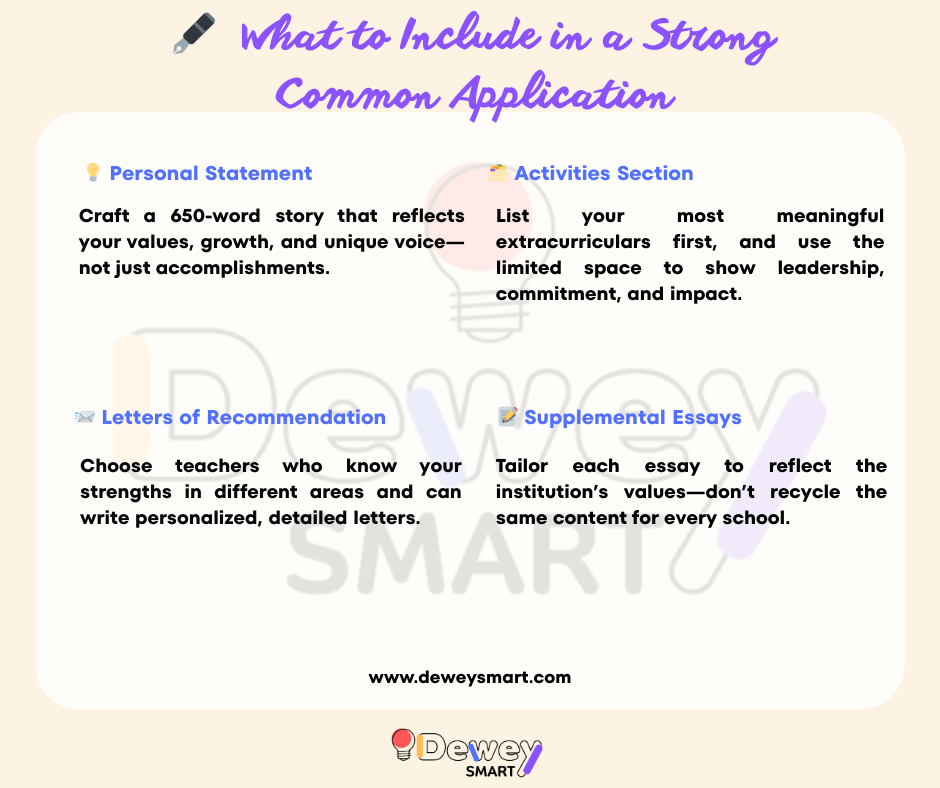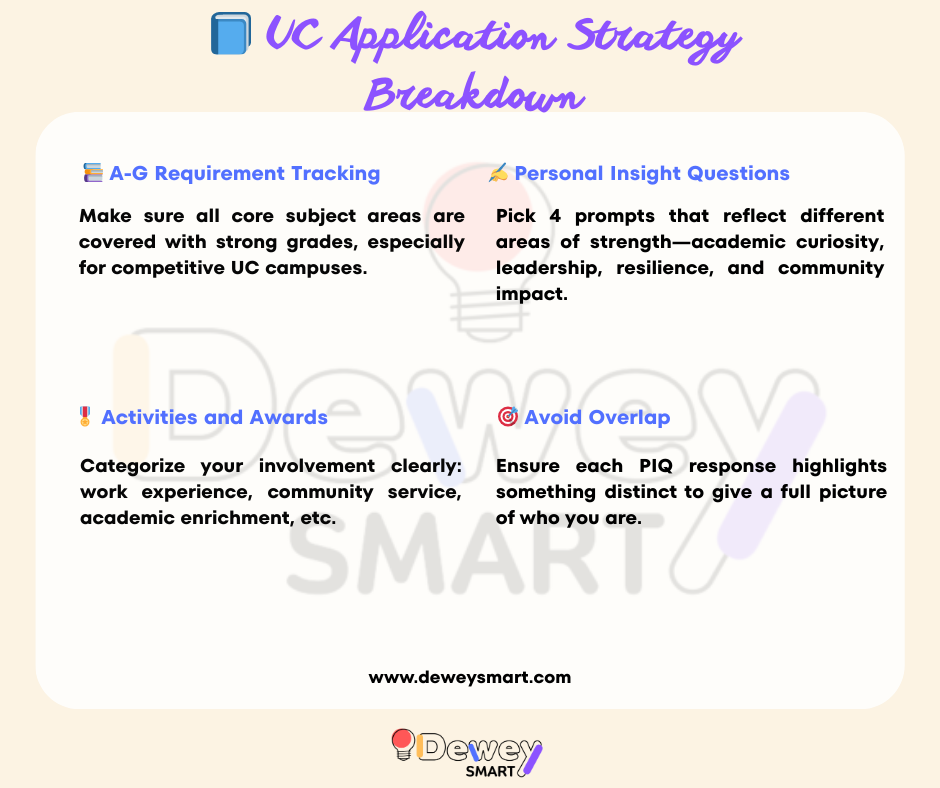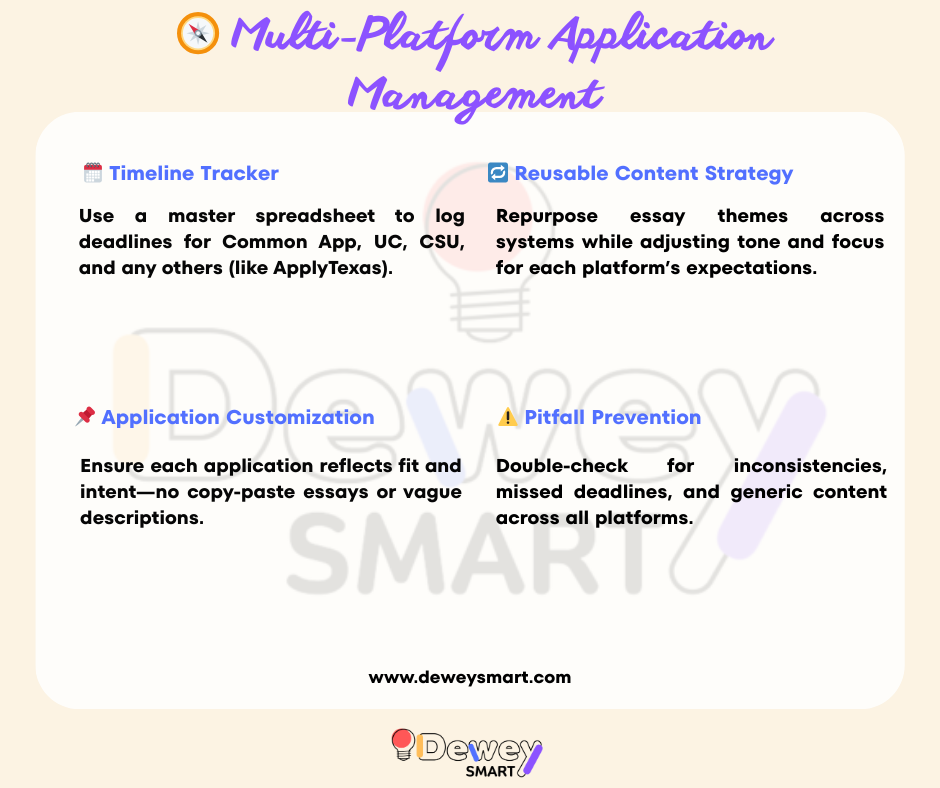
The college application process involves multiple platforms, each with unique requirements, timelines, and strategies. Understanding these differences is crucial for maximizing your admissions success while managing time and effort efficiently. The three primary application systems – Common Application, UC Application, and CSU Application – serve different purposes and require distinct approaches.
The Common Application represents the most widely used college application platform, accepted by over 1,000 institutions worldwide. Its popularity stems from efficiency – students complete one application that can be submitted to multiple colleges.
Personal Information and Demographics: Beyond basic contact information, this section captures citizenship status and demographic details that provide important context for admissions committees.
Academic History: Detailed reporting of high school coursework, grades, and standardized test scores (where applicable). This section requires careful attention to accuracy and strategic presentation of academic achievements.
The Personal Statement: Perhaps the most critical component, the 650-word essay allows students to showcase personality, experiences, and writing ability through one of several prompts. This essay should reflect authentic voice while demonstrating growth, insight, and alignment with college values.
Activities Section Deep Dive: Students can list up to 10 extracurricular activities, with each entry including:
The activities section is crucial because it demonstrates how students spend time outside academics and reveals leadership potential, commitment depth, and community involvement.
Letters of Recommendation: Strategic selection of recommenders who can speak to different aspects of student character and achievement. Most colleges require 1-2 teacher recommendations plus a counselor letter.
Supplemental Essays: School-specific essays that demonstrate fit and interest. These vary significantly by institution and often include "Why This College?" prompts, community-focused questions, and specialized program inquiries.

The University of California system uses its own application platform serving nine undergraduate campuses. This application differs significantly from the Common App in structure and philosophy.
Academic History Focus: Intensive focus on coursework completion, particularly A-G subject requirements. Students must report:
Personal Insight Questions (PIQs): Instead of a single personal statement, students respond to four of eight prompts (350 words each):
This structure allows students to showcase multiple facets of their personality and experience.
Activities and Awards: Comprehensive listing categorized by type:
A-G Requirement Mastery: Ensure completion of all required coursework categories with appropriate grades.
PIQ Strategic Selection: Choose prompts that:
Comprehensive Activity Reporting: Use all available categories to present a complete picture of involvement and achievement.

The California State University system's application focuses primarily on academic qualifications with minimal emphasis on essays or extensive extracurricular reporting.
Academic Record Emphasis: Heavy focus on:
Limited Extracurricular Reporting: Unlike Common App and UC applications, CSU applications don't emphasize extensive activity lists or essays.
Local Area Preference: Understanding geographic preferences and impacted program requirements.
GPA Optimization: Focus on strong performance in A-G subjectsImpacted Program Understanding: Research specific major and campus competition levelsGeographic Strategy: Leverage local area preferences where applicable
Smart students adapt core content across platforms:
California Admissions Strategy: Students often apply through all three systems to maximize in-state options while pursuing private and out-of-state opportunities.
New York Admissions Approach: Heavy Common App usage with SUNY/CUNY system applications as backups.
Texas Admissions Planning: ApplyTexas system for state schools combined with Common App for private institutions.
Successful students balance application breadth with quality:
Digital Organization: Use spreadsheets or apps to track:
Backup Systems: Maintain backup copies of all essays and application materials.
Time Management: Create realistic timelines allowing for multiple revision cycles.

Here’s what to explore next:
✅ Schedule a free consultation with one of our college counseling experts
📅 Join our upcoming webinar to learn how we turn potential into acceptance
📘 Need help building a personalized college strategy?
Ready to develop a winning college admissions strategy tailored to your timeline? Dewey Smart's expert counselors provide customized guidance whether you're starting in 9th grade or need intensive senior year support. Contact us today to discover how we can maximize your college admissions success.
